ソクラテス 哲学の父 弟子プラトン 著作と名言と刑死 絶大な功績

Socrates: The Father of Philosophy, Plato’s Disciple, His Works, Famous Quotes, and his Notable Death
イントロダクション
ソクラテスは古代ギリシャの哲学者であり、彼の哲学は「無知の知」として知られています。
彼は、自分自身の無知を認識することで、真の知識を追求しました。
この記事では、ソクラテスの哲学について詳しく掘り下げ、彼がどのように無知の知を追求したのかについて解説していきます。
ソクラテスの哲学がどのように私たちの日常生活に影響を与えるのか、その意義や応用方法についても触れていきます。
ソクラテスの哲学を通じて、私たち自身の知識のあり方を見つめ直し、より深い洞察を得ることができるでしょう。
Introduction
Socrates, an ancient Greek philosopher, is renowned for his philosophy of “knowing thyself” or “knowing one’s ignorance.”
He pursued true knowledge by acknowledging his own ignorance.
In this article, we delve into Socrates’ philosophy, exploring how he pursued knowledge through the recognition of ignorance.
We also examine how Socratic philosophy impacts our daily lives, discussing its significance and practical applications.
Through Socrates’ philosophy, we can reassess our own understanding of knowledge and gain deeper insights into our existence.
ソクラテスとは?
ソクラテスとは、古代ギリシャの哲学者であり、哲学の父とも呼ばれています。
彼は自ら著作を残さなかったため、弟子のプラトンやクセノポンなどの記録によってその思想や生涯が伝えられています。
ソクラテスは、自分が無知であることを認める「無知の自覚」の態度をとり、相手の思い込みや矛盾を暴く「問答法」を用いて、道徳や知識に関する探求を行いました。
彼は道徳や正義、美などの普遍的な価値観について問い続け、自分の信念に従って生きることを重視した人物です。
Who is Socrates?
Socrates was an ancient Greek philosopher, often referred to as the father of philosophy.
Although he did not write any works himself, his ideas and life are conveyed through the records of his disciples, such as Plato and Xenophon.
Socrates adopted an attitude of “knowing thyself,” acknowledging his own ignorance, and employed the “Socratic method” to expose the assumptions and contradictions of others, engaging in inquiries about morality and knowledge.
He continuously questioned universal values such as morality, justice, and beauty, emphasizing the importance of living according to one’s own convictions.
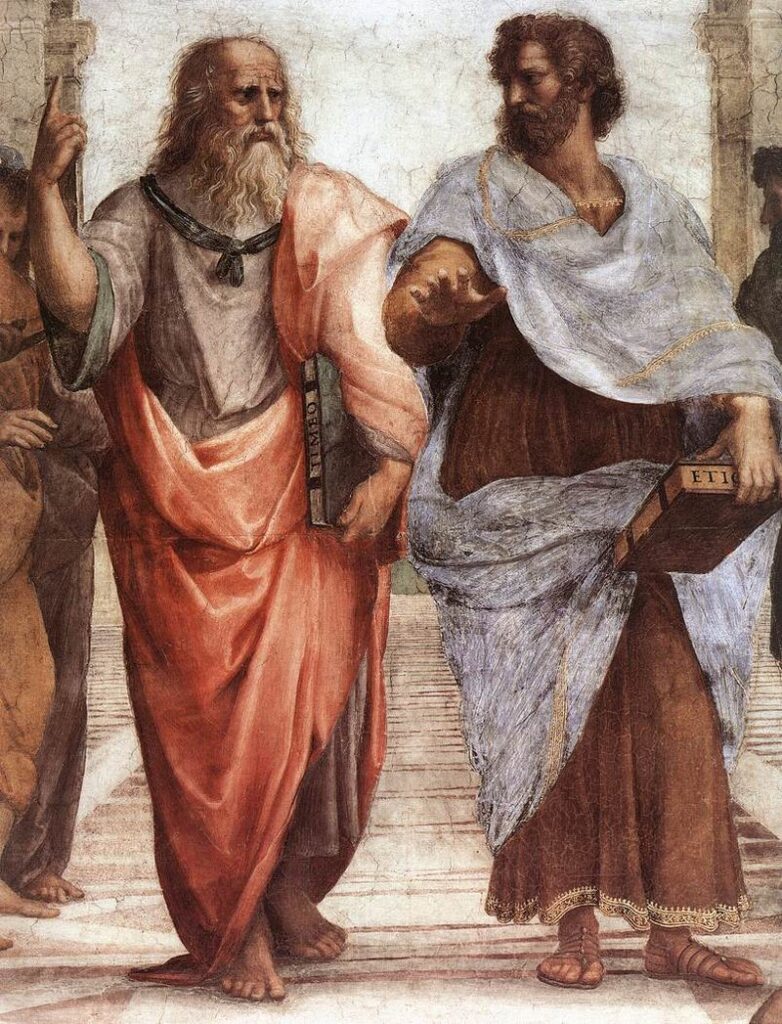
Raphael’s Painting, 1509: Plato and Aristotle
「哲学の父」と呼ばれる
「哲学の父」という表現は諸説ありますが、一般的にソクラテスを指すことが多いです。
ソクラテスが「哲学の父」と呼ばれる理由は、彼が西洋哲学の基礎を築き、後世の哲学に多大な影響を与えたからです。
また、ソクラテスの思想や哲学を引き継いだ多くの弟子がいるというのも理由の一つです。
彼の弟子の中には、プラトンやアリストテレスなどの有名な哲学者もいます。
ソクラテスの思想と名言
ソクラテスの思想は、主に彼自身の対話的な哲学的アプローチと倫理的な問題への関心に基づいています。
哲学の父と呼ばれるほど影響力の大きい人物で、大勢の弟子もいたため、思想に基づいた数々の名言を残しています。
ソクラテスの思想を解説する
ソクラテスの思想を解説するうえで、重要になってくるのが当時の時代背景です。
この時代は、アテネをはじめとするギリシャの都市国家(ポリス)が政治的・経済的な繁栄を迎えていました。
“The Father of Philosophy”
The expression “the father of philosophy” is subject to various interpretations, but it commonly refers to Socrates.
Socrates is often dubbed as “the father of philosophy” because he laid the foundation of Western philosophy and profoundly influenced subsequent philosophical thought.
Furthermore, one of the reasons he is referred to as such is the numerous disciples who inherited his philosophical ideas.
Among his disciples are renowned philosophers like Plato and Aristotle.
Socrates’ Philosophy and Quotes
Socrates’ philosophy primarily revolves around his dialogical approach to philosophical inquiry and his ethical concerns.
Being such an influential figure, often regarded as the father of philosophy and having a large number of disciples, he left behind numerous memorable quotes based on his philosophical ideas.
Explaining Socrates’ Philosophy
Understanding the historical context of the time becomes crucial in explaining Socrates’ philosophy.
This era witnessed the political and economic prosperity of city-states like Athens in Greece.

“Socrates, His Two Wives, and Alcibiades” by the Dutch Golden Age painter, Leonaert Bramer
この繁栄は、個人の自由と市民の参政権が重視される政治体制や商業の発展などによって支えられていました。
そんな中、ソフィストと呼ばれる知識・教育の専門家が登場しました。
彼らは主に弁論術や政治的なスキルを教え、若者たちをリーダーシップや対話の能力を持つ市民として育成しました。
ソフィストたちの教育に対して、ソクラテスは独自の思想と方法を提唱しました。
具体的には、ソフィストが心理の追求より相手を論破することに力を入れた相対主義的な思考を展開する中、ソクラテスは絶対的な真理を追究し、ソフィストたちを批判しました。
ソクラテスの思想はこのような時代背景の中で形成されました。
“This prosperity was sustained by political systems that emphasized individual freedom and civic participation, as well as the development of commerce.
Amidst this backdrop, emerged a group known as the Sophists, experts in knowledge and education.
They primarily taught rhetoric and political skills, nurturing young people to become citizens with leadership and conversational abilities.
In response to the education provided by the Sophists, Socrates advocated for his own philosophy and methods.
Specifically, while the Sophists emphasized relativistic thinking, focusing more on defeating opponents than on the pursuit of truth, Socrates pursued absolute truth and critiqued the Sophists.
Socrates’ philosophy was shaped within this historical context.”
ソクラテスの名言集
以下にソクラテスの代表的な名言を紹介します。
“知っていることは、自分が何も知らないということだけだ。”
この名言は、ソクラテスの無知の自覚を表現しています。
彼は謙虚さを持ち、自己啓発と探求の重要性を強調しました。
“生かされているのは、身体ではなく魂である。”
ソクラテスは人間の魂の成長と徳の追求を重視しました。
彼は自己の内面を探求することが人生の意義となると主張しました。
“一番の幸福は善い人間である。”
ソクラテスは徳の追求と知識の関連性を強調しました。
彼は知識を持つことで人はより善い人間になることができると主張しました。
“善き生き方は、他者に役立つことである。”
ソクラテスは他者への奉仕や社会的責任を重視しました。
彼は他者に対する貢献が人生の意義を形成すると考えました。
“難しい問いに答えるためには、正しい問いをすることから始めなければならない。”
ソクラテスは、真理に到達するためには正確な問いを投げかけることが重要であると考えました。
“信念を持つことは、真の知識を持つことではない。”
ソクラテスは、確固たる信念を持つことが真の知識ではなく、常に疑問を持ち続ける姿勢が重要であると主張しました。
“君たちは、自分自身を善き人間とするために、常に徳を追求するべきである。”
ソクラテスは徳の追求が人間の目標であるとし、個人の成長と善い生き方の追求を促しました。
“Socrates’ Collection of Quotes
Below, we present some of Socrates’ most notable quotes:
- ‘The only true wisdom is in knowing you know nothing.’
This quote epitomizes Socrates’ acknowledgment of his own ignorance. He advocated for humility and emphasized the importance of self-improvement and inquiry.
- ‘The unexamined life is not worth living.’
Socrates prioritized the growth of the human soul and the pursuit of virtue. He asserted that exploring one’s inner self is essential for finding meaning in life.
- ‘The greatest way to live with honor in this world is to be what we pretend to be.’
Socrates emphasized the pursuit of virtue and its relation to knowledge. He believed that possessing knowledge enables individuals to become better human beings.
- ‘The secret of change is to focus all of your energy not on fighting the old, but on building the new.’
Socrates valued service to others and social responsibility. He considered contributing to others as fundamental in shaping the meaning of life.
- ‘An unexamined life is not worth living.’
Socrates believed that asking precise questions is crucial for attaining truth.
- ‘True knowledge exists in knowing that you know nothing.’
Socrates argued that having unwavering beliefs does not equate to possessing true knowledge; rather, maintaining an attitude of continuous questioning is essential.
- ‘To find yourself, think for yourself.’
Socrates asserted that pursuing virtue is the ultimate goal for humans, encouraging individual growth and the pursuit of a virtuous life.”
ソクラテスの生涯
ソクラテスは謎めいた人物であり、自分に関しての一切の著述を行わなかったため、主に彼の死後に執筆を行った古代の作者たち、特に彼の弟子のプラトンとクセノポンの著作を通して知られています。
“The Life of Socrates
Socrates remains an enigmatic figure, primarily known through the writings of ancient authors, particularly his disciples Plato and Xenophon, who wrote extensively about him after his death. Socrates himself left no written records, adding to the mystery surrounding his life and teachings.”
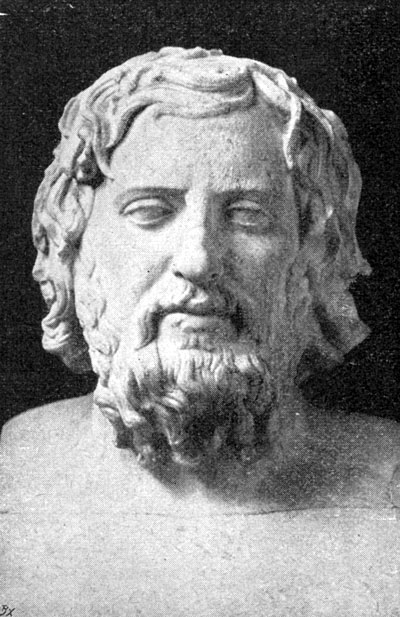
Xenophon
生い立ちと青年期
ソクラテスは紀元前470年頃、アテネで産まれたとされています。
父親は彫刻師であり、母親は助産師でした。
若い頃からソクラテスは知識と教育に興味を持ち、数学や音楽、詩などを学びました。
また、当時の哲学者たちの教えに触れ、特にアナクサゴラスやパルメニデスといった哲学者の影響を受けたようです。また、彼はアテネの市民として兵役にも参加しました。
Socrates: Early Life and Youth
Socrates is believed to have been born around 470 BC in Athens.
His father was a sculptor, and his mother was a midwife.
From a young age, Socrates showed an interest in knowledge and education, studying subjects like mathematics, music, and poetry.
Moreover, he encountered the teachings of philosophers of his time, particularly being influenced by philosophers such as Anaxagoras and Parmenides. Additionally, he served in the military as a citizen of Athens.
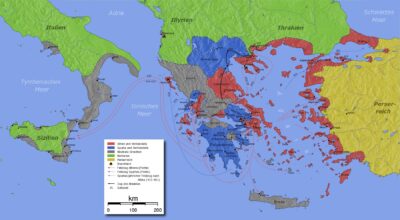
青:ペロポネソス同盟諸都市、
赤:デロス同盟諸都市、
黄:アケメネス朝
The Peloponnesian War
Blue: Cities of the Peloponnesian League
Red: Cities of the Delian League
Yellow: Achaemenid Empire
T
ソクラテスの戦争体験
ソクラテスはアテナイの市民としてペロポネソス戦争に参加しました。
彼は三度も戦場に赴き、勇敢に戦ったという記録があります。
しかし、彼は戦争を賛美することはなく、むしろ人間の愚かさや不正義を批判しました。
彼は戦争の中で自分の信念を曲げることなく、真理や善を求め続けました。
彼の戦争体験は、彼の哲学的思考に大きな影響を与えたと考えられます。
死刑宣告とその後の運命
ソクラテスはアテネの市民たちとの対話を通じて自身の思想を広めましたが、彼の独特な方法や質問による批判的なアプローチは一部の人々から非難を浴びることとなりました。
彼は「知者を自称する」との告発を受け、公開裁判で裁かれることになりました。
紀元前399年、ソクラテスは公開裁判で告発され、市民たちの前で弁明を行いました。
しかし、彼は無罪判決を受けることなく、有罪とされました。
その結果、彼は死刑判決を受け、毒を飲んで自決したとされています。
Socrates’s Experience in War
Socrates participated in the Peloponnesian War as a citizen of Athens.
There are records indicating that he went to the battlefield three times and fought bravely.
However, he did not praise the war; instead, he criticized human folly and injustice.
Throughout the war, he remained steadfast in his beliefs, continuing to seek truth and goodness.
It is believed that his experience in war had a significant influence on his philosophical thinking.
Death Sentence and Subsequent Fate
Through dialogues with the citizens of Athens, Socrates spread his ideas, but his unique method and critical approach through questioning led to condemnation by some.
He was accused of “corrupting the youth” and faced a public trial.
In 399 BC, Socrates was brought to trial and defended himself before the citizens.
However, he was found guilty without being acquitted.
As a result, he was sentenced to death and chose to take his own life by drinking poison.

“Death of Socrates” Depicted by Jacques-Louis David, 1787
ソクラテスの思想
ソクラテスの思想の根底となっているのは「無知の自覚」です。
それゆえ自分の知識や信念に疑いを持ち、常に問いかけることで、自分や他者の思考を真理へと導こうとしました。
また、人間の知性や徳性を重視し、対話を通じて民衆に理性や正義を訴えました。
内容を詳しく解説していきます。
無知の自覚と問答法
ソクラテスは、自分自身が何も知らないという無知の自覚を持つことが重要だと考えました。
彼は、人々が自分たちは知識を持っていると主張する一方で、実際には真の知識を持っていないことを指摘しました。
この無知の自覚は、学びと成長のための出発点となります。
ソクラテスは、真理や知識への探求が、自己の無知を認識することから始まると信じました。
問答法は、ソクラテスが無知の自覚を持つ人々との対話において使用した手法です。
彼は相手に対して一連の質問を投げかけ、相手の信念や主張を探求し、矛盾や欠陥を明らかにしようとしました。
ソクラテスは、真理は内なる知識の中に存在しており、対話を通じてそれを引き出すことができると考えました。
また、問答法は、相手が自身の信念や前提を疑い、徹底的に検討することを促すことで、真理に近づく手段となります。
ソクラテスは、相手が矛盾を見つけたり、自身の考えを改める必要があると気付くことによって、真実と正義に到達することができると信じました。
問答法は単なる議論や意見の交換ではなく、個人の自己認識と思考の深化を促すことを目的としています。
ソクラテスは、真の知識や徳を追求するためには、自己の無知を認識し、疑問を持ち、自己反省を行うことが不可欠だと考えました。
そのため、問答法はソクラテスの哲学的方法の重要な要素として、後の哲学者や教育者にも影響を与えました。
アレテーと徳の概念
アテレーとは、ギリシャ語で卓越性を意味する言葉です。
徳としてのアテレーは、個人の優れた特質や能力、道徳的な価値を指します。
この徳は、知恵、勇気、正義、節制などの徳に関連づけられ、人間の完全性として追求されるものです。
アテレーの追求は、人々が自己の潜在能力を最大限に発揮し、美徳的な生き方を追求することを目指します。
また、他者に対する思いやりや善行、公正さなどの要素も含みます。
個人が自分自身の徳を追求することによって、社会全体の幸福や調和に貢献することが期待されます。
ソクラテスは、アテレーの追求が人間の最高の善であると考えました。
個人が徳を持ち、道徳的に優れた生き方をすることが、幸福や人間の完成につながると主張しました。
Socrates’ Philosophy
At the core of Socrates’ philosophy lies the concept of “awareness of ignorance.”
Hence, by questioning his own knowledge and beliefs and constantly probing, he sought to lead both himself and others’ thoughts towards truth.
Moreover, he emphasized the importance of human intellect and virtue, appealing to reason and justice through dialogue.
Let’s delve into the details.
Awareness of Ignorance and the Socratic Method
Socrates believed that acknowledging one’s own ignorance was crucial.
He pointed out that while people might claim to possess knowledge, they often lacked true understanding.
This awareness of ignorance served as the starting point for learning and growth.
The Socratic method was a technique used by Socrates in dialogues with those who acknowledged their ignorance.
He posed a series of questions to explore their beliefs and arguments, aiming to uncover contradictions or flaws.
Socrates believed that truth lay within inner knowledge and could be drawn out through dialogue.
Furthermore, the Socratic method aimed to prompt individuals to question their beliefs and premises thoroughly, ultimately leading them closer to truth.
Socrates believed that by recognizing contradictions or realizing the need to revise one’s own beliefs, individuals could attain truth and justice.
The Socratic method wasn’t merely about debate or exchanging opinions; its purpose was to encourage self-awareness and deepen one’s thinking.
Socrates argued that recognizing one’s ignorance, questioning, and self-reflection were essential for the pursuit of true knowledge and virtue.
Thus, the Socratic method became a significant element of Socratic philosophy, influencing later philosophers and educators.
Arete and the Concept of Virtue
Arete, a Greek term, translates to “excellence.”
As a virtue, Arete refers to individuals’ outstanding qualities, abilities, and moral values.
It encompasses virtues such as wisdom, courage, justice, and temperance, aiming for human excellence.
The pursuit of Arete aims for individuals to realize their potential and lead virtuous lives.
It also includes elements such as compassion, kindness, and fairness towards others.
By pursuing personal virtue, individuals are expected to contribute to the overall happiness and harmony of society.
Socrates believed that the pursuit of Arete was the highest good for humanity.
He argued that possessing virtue and leading a morally superior life led to happiness and human fulfillment.
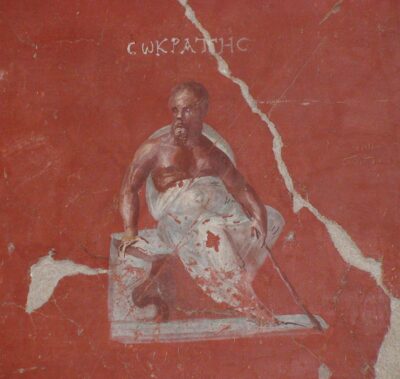
社会契約論と自立の思想
社会契約論とは、人間が自然状態から社会状態に移行する際に、自らの自由や権利の一部を共同体に譲渡し、政府や法に服従することに合意したという仮想的な契約のことです。
自立の思想とは、人間が自分自身の理性や判断力を用いて、自分の生き方や価値観を決めることができるという思想です。
人間が伝統や権威に従うことなく、自分の良心や理性に従って行動することができるという考え方になります。
社会契約論と自立の思想は、両者に関係性があると考えられます。
社会契約論は、人間が自分の意志で社会に参加することを前提としています。
人間は社会契約を結ぶことで、自分の生き方や価値観を表明することができ、一方、自立の思想は、人間が社会においても自分の理性や判断力を失わないことを要求しています。
つまり社会契約論と自立の思想は、人間の主体性や尊厳を重視する点で共通していると言えます。
この考え方の原点となったのはソクラテスの思想だと言えます。
ソクラテスの影響と関連書籍
ソクラテスの影響は、弟子たちを通して、後の哲学者や思想家にも広まりました。
弟子たちにはプラトン、アリストテレス、クセノポンらがおり、特に、古代ギリシャ哲学の流れを受け継いだストア派哲学や新プラトン主義哲学の中で、ソクラテスの思想は重要な位置を占めています。
また、弟子たちにより書かれたソクラテスの関連書籍から、本人の人物像が現代にも伝わることとなりました。
ソクラテスの影響と後継者たち
プラトンの後継者たちを紹介します。
プラトン: プラトンは、ソクラテスの最も有名な弟子であり、哲学者として独自の業績を残しました。
プラトンはソクラテスの教えを受け継ぎ、彼の対話篇を通じてソクラテスの思想を広めました。
また、プラトンはアカデメイアと呼ばれる学園を設立し、哲学の教育を行いました。
クセノポン: クセノポンもソクラテスの弟子であり、彼の著作『ソクラテスの思い出』においてソクラテスの言行を記録しました。
クセノポンは歴史家や将校としても知られており、ソクラテスの思想を広める役割を果たしました。
アリストテレス: アリストテレスはソクラテスの弟子であり、後に自身も有名な哲学者として知られるようになりました。
“Social Contract Theory and the Philosophy of Autonomy”
The social contract theory refers to a hypothetical agreement where individuals, transitioning from a state of nature to a societal state, willingly surrender some of their freedoms and rights to the community, consenting to abide by government and laws.
The philosophy of autonomy, on the other hand, asserts that individuals can determine their way of life and values using their own reason and judgment. It advocates for people to act according to their conscience and rationality, rather than blindly following tradition or authority.
There is a perceived relationship between the social contract theory and the philosophy of autonomy. The former presupposes human participation in society by their own will, allowing individuals to express their way of life and values. Meanwhile, the latter demands that individuals maintain their reason and judgment even within society.
In essence, both the social contract theory and the philosophy of autonomy emphasize human agency and dignity.
This line of thinking traces back to the philosophy of Socrates.
Socrates’ Influence and Related Works
Socrates’ influence extended through his disciples to later philosophers and thinkers. Notably, through disciples like Plato, Aristotle, and Xenophon, Socratic philosophy found prominence in subsequent philosophical movements like Stoicism and Neoplatonism.
Moreover, Socrates’ persona is preserved through related works authored by his disciples.
Socrates’ Influence and Successors
Here are some successors of Plato:
Plato: Plato, Socrates’ most famous disciple, established his own philosophical legacy. He propagated Socratic philosophy through his dialogues and founded the Academy, where philosophical education flourished.
Xenophon: Another disciple of Socrates, Xenophon, recorded Socrates’ words and deeds in his work “Memorabilia of Socrates.” Xenophon, known also as a historian and soldier, played a role in disseminating Socratic thought.
Aristotle: Aristotle, initially a disciple of Plato, later became a renowned philosopher in his right. He, too, was influenced by Socrates’ teachings.
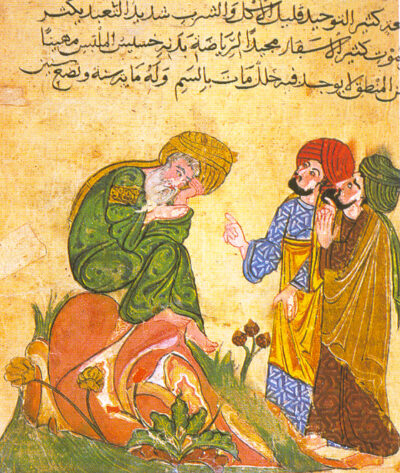
“A Narrative on Socrates by Al-Mubashshir ibn Fatik”
彼はプラトンの学友でもあり、彼の哲学に大きな影響を受けました。
アリストテレスはソクラテスの思想を批判的に再評価し、独自の哲学体系を構築しました。
ソクラテスに関連する書籍の紹介
前述のとおりソクラテスは自身の著述がないため、弟子たちによる記述から人物像が浮かんできます。
以下に関連のある著作の紹介をします。
プラトンの対話篇(『ソクラテスの弁明』、『クリトン』、『ゴルギアス』など): ソクラテスの哲学は、プラトンによって対話形式で描かれた多くの作品に登場します。
プラトンはソクラテスの弟子であり、ソクラテスの思想と哲学的方法を伝える役割を果たしました。
プラトンの対話篇は、ソクラテスの対話や哲学的な探求を通じて、真理や善の本質を追求する姿勢を描いています。
クセノポンの『ソクラテスの思い出』: ソクラテスの生徒であったクセノポンが記した書籍で、ソクラテスの思想と人物像を伝える貴重な資料です。
この書籍は、ソクラテスの教えや対話の具体的なエピソードを通じて、彼の思想と哲学的な方法を探求しています。
アリストテレスの『ニコマコス倫理学』: アリストテレスは、ソクラテスの弟子であり、プラトンの学友でもありました。
彼の『ニコマコス倫理学』では、ソクラテスの倫理学的なアイデアや徳に関する考え方が発展・展開されています。
アリストテレスはソクラテスの影響を受けながら、徳や幸福に関する独自の理論を構築しました。
“He was also a companion of Plato, and greatly influenced by his philosophy.
Aristotle critically reevaluated Socrates’ philosophy and constructed his own philosophical system.
Introduction to Books Related to Socrates
As mentioned earlier, since Socrates did not write any texts himself, his character emerges from descriptions by his disciples.
Here is an introduction to relevant works:
Plato’s Dialogues (‘Apology,’ ‘Crito,’ ‘Gorgias,’ etc.): Socrates’ philosophy appears in many works written in dialogue form by Plato. Plato, a disciple of Socrates, played a role in transmitting Socrates’ ideas and philosophical methods. Plato’s dialogues portray Socrates’ pursuit of truth and the essence of goodness through dialogues and philosophical inquiries.
Xenophon’s ‘Memorabilia of Socrates’: This book, written by Xenophon, a student of Socrates, is a valuable source for understanding Socrates’ ideas and character. Through specific episodes of Socrates’ teachings and dialogues, this book explores his philosophical ideas and methods.
Aristotle’s ‘Nicomachean Ethics’: Aristotle, a disciple of Socrates and a companion of Plato, further developed Socrates’ ethical ideas and thoughts on virtue in his ‘Nicomachean Ethics.’ While influenced by Socrates, Aristotle constructed his own theories on virtue and happiness.”
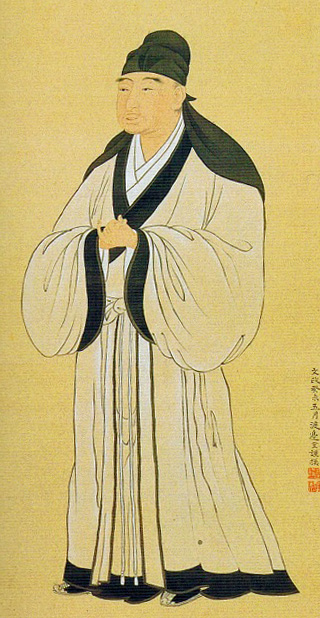
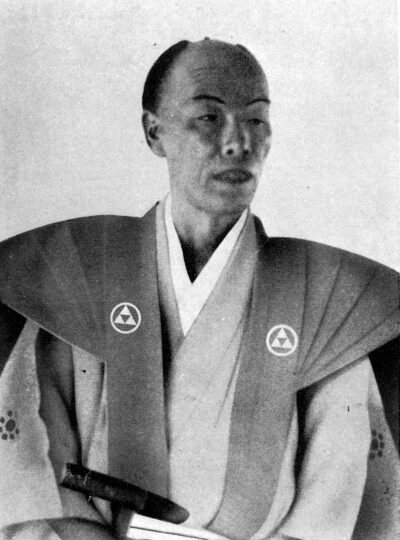
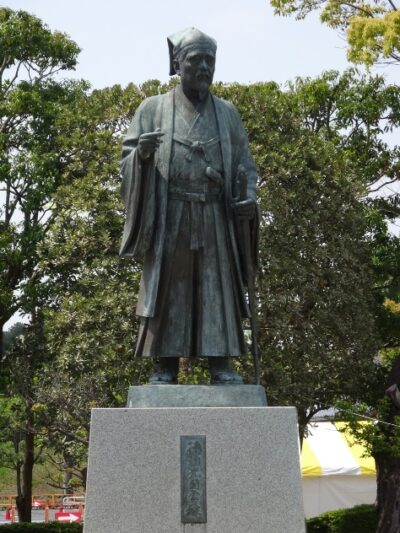
Warning: Undefined variable $comment_form_sns_tags in /home/ktsky/philosophy-kayak.com/public_html/wp-content/themes/shaper/comments.php on line 27
1件のコメントがあります